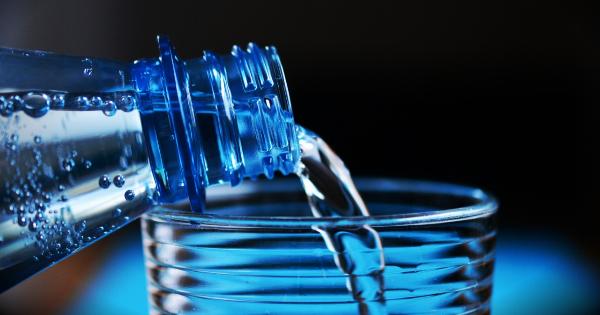Dehydration occurs when your body doesn’t have enough fluid to function properly. It can be incredibly dangerous and lead to serious health complications if not addressed promptly.
Understanding the warning signals of dehydration is crucial in order to prevent severe consequences. In this article, we will explore the various symptoms and signs of dehydration that you should be aware of.
1. Increased Thirst
One of the initial warning signals of dehydration is increased thirst. When your body is lacking fluids, it sends signals to your brain to encourage you to drink more water.
Pay attention to this cue and ensure you replenish your body with water adequately.
2. Dry Mouth and Swollen Tongue
Dehydration can cause your mouth to become dry and your tongue to swell up. You may also have difficulty speaking or chewing due to the dryness. These symptoms are a result of decreased saliva production, which helps to keep your mouth lubricated.
3. Fatigue and Lethargy
If you’re feeling unusually tired and lacking energy, it could be a sign of dehydration. As your body loses water, it affects the functioning of your organs, including the heart, which has to work harder to pump blood.
This increased strain can lead to tiredness and exhaustion.
4. Dizziness and Lightheadedness
Dehydration can cause your blood volume to decrease, which in turn lowers the oxygen and nutrient supply to your brain. This can result in dizziness, lightheadedness, and even fainting spells.
It is important to recognize these symptoms and take immediate action to rehydrate yourself.
5. Dark Urine
Monitoring the color of your urine can provide valuable insights into your hydration levels. Dark-colored urine is a clear indication that you are dehydrated. In a well-hydrated individual, the urine is usually pale yellow or almost colorless.
However, if you notice a darker shade, it’s a sign to increase your water intake.
6. Reduced Urination
Another warning signal of dehydration is a decrease in the frequency of urination. When your body is adequately hydrated, it produces a sufficient amount of urine to eliminate waste products.
However, in dehydration, the body tries to conserve water by producing less urine. If you notice a significant reduction in urination, it’s time to hydrate yourself.
7. Dry and Cool Skin
Dehydration affects the moisture level of your skin. If you notice that your skin feels dry, cool, or lacks elasticity, it may be a sign of dehydration.
The loss of fluids hampers the skin’s ability to maintain its normal moisture balance, resulting in these symptoms.
8. Muscle Cramps and Weakness
As your body becomes dehydrated, it can lead to electrolyte imbalances, particularly a lack of sodium and potassium. These electrolytes play a crucial role in muscle functioning. Consequently, dehydration can cause muscle cramps, weakness, and spasms.
Replenishing your body with fluids rich in electrolytes can help alleviate these symptoms.
9. Headaches and Migraines
Dehydration can trigger headaches and even migraines in some individuals. When your body lacks fluids, it affects the oxygen supply to your brain, leading to the development of throbbing headaches.
Ensuring proper hydration can often help alleviate these symptoms.
10. Rapid Heartbeat
When dehydrated, your body tries to compensate for the lack of fluids by increasing your heart rate. This is the body’s way of trying to maintain blood pressure and supply oxygen to the organs.
If you notice a rapid or irregular heartbeat, it could be a sign of dehydration and should not be ignored.
It is important to recognize these warning signals of dehydration and take appropriate action when needed. Increasing your fluid intake during hot weather, physical activity, or illness is essential to prevent dehydration.
Always listen to your body and provide it with the hydration it requires to function optimally.



























